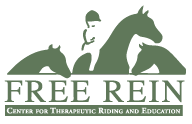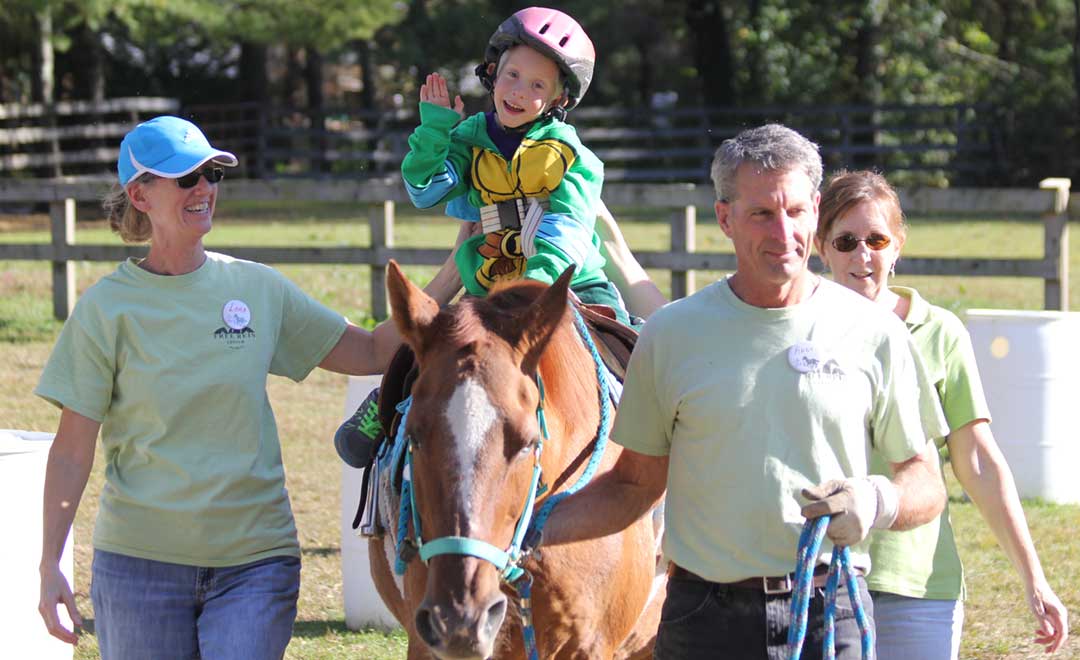Therapeutic Horseback Riding
Equine Therapy involves interactions between humans and horses. Activities include riding, grooming, feeding, haltering and leading horses under the supervision of a PATH (Professional Association of Therapeutic Horsemanship International) certified instructor.
Physically, therapeutic riding helps coordination and normalizes muscle tone. Riding can improve posture, increase the functional range of motion, muscular strength, flexibility, perceptual motor skills and sensory motor skills.
Psychological benefits for individuals who participate include improved motivation, self-esteem, and confidence. Therapeutic riding enhances the development of cognitive skills and allows the rider to improve socialization skills and learn teamwork. Depression and anxiety are positively impacted by the horse human bond. The therapeutic benefits of structured interaction with a horse are recognized by many in the medical community.
Therapeutic riding is beneficial for these diagnoses including but not limited to:
- ADD or other Hyperactivity Disorder
- Autism Spectrum Disorder
- Cerebral Palsy
- Muscular Dystrophy
- Down Syndrome
- Multiple Sclerosis
- Stroke
- Traumatic Brain Injuries
- Visual and Auditory Impairments

